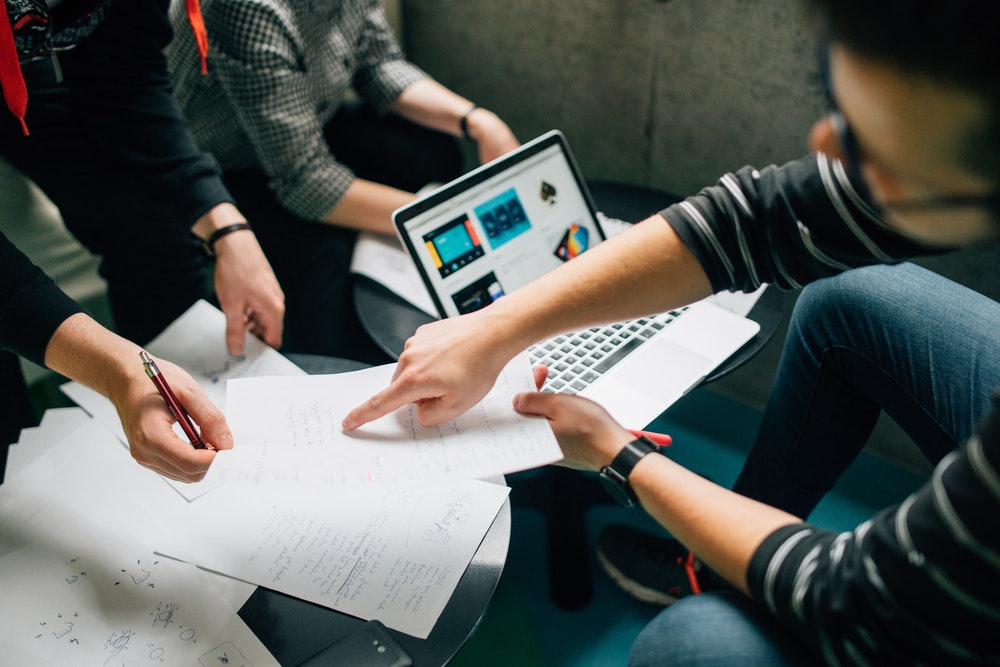
05 Jul 3 Overlooked Ways to Achieve Flow and Reach Peak Productivity in the Office
The modern workplace often feels like it feeds off ‘busy-ness’ rather than business. In any company if you ask a colleague how their work is going, they will usually say ‘busy’ at least once in their reply.
But being ‘busy’ doesn’t always mean productive – it usually means switching from one to demand to the next, either through a torrent of email, meetings, or taps on the shoulder. It eliminates the ability to achieve ‘flow’ – a state of consciousness where you can reach peak productivity. But, even in an office, you can easily take steps to achieve flow – some might seem slightly counter-intuitive, but your productivity will almost certainly benefit.
#1 Don’t read email when you first get in (or after hours)
Email is a deadly productivity killer; but some people work almost entirely out of their inboxes. They’ll log in as soon as they arrive in the office, and then continuing to sift through them as they get home.
There are several problems with this approach.
The first is that responding to one email after the next is likely to make the respondent multitask, which is damaging to cognitive ability. The best way of getting a high level of productivity at work is to be able to focus on a task for 1-2.5 hours – which is a state often referred to as ‘flow’. The problem is it usually takes a little over 25 minutes to get into such a state. So if you’re flitting from one task to the next, through an email inbox, then you’re unlikely to get into the zone for this higher level of productivity.
Second, taking your work home with you in and continuing to tend to email will not give you the regular cognitive breaks that you need. Your brain is going to get progressively more tired, and you’re more likely to get stressed. As much as any other physical part of your body, your brain sometimes just needs a rest. Give it one by switching off email after work.
#2 Organise meetings for the afternoon if you can
If you don’t check your emails in the morning, then you’re much more likely to get into work with a set objective for the day and crack through it in the morning. But there’s still another obstacle – the morning meeting.
Morning meetings break up times when flow could possibly be achieved. They often require a high degree of focus to be productive, particularly if you’re the one presenting, and they place heavy priority on tasks being done soon after. If you had any ambitions to achieve anything else in the morning, which should be your most productive time, then it’s less likely that you’ll be able to achieve them.
Of course, it may be possible to have a morning meeting and achieve peak productivity in the afternoon, but it’s easier in the morning when your mind is fresher. Added to this, being able to maintain a high state of productivity for the entire day becomes fairly limited. Many successful authors rise early in the morning, work 5-6 hours, and then finish for the day. Much more than that and they hit a wall. So really it’s better to try and plan your peak productive time in the morning, then use your afternoons for meetings.
#3 Stop multitasking
Unfortunately the modern workplace suggests multitasking is a necessity. How else are employees going to meet the demands of a hundred emails and multiple meetings in one morning? What this most often leads to is people checking email all the time, when they are in meetings.
The biggest problem with multitasking is that it actually reduces our cognitive abilities. Author and psychologist Dr Travis Bradberry writes:
A study at the University of London found that participants who multitasked during cognitive tasks experienced IQ score declines that were similar to what they’d expect if they had smoked marijuana or stayed up all night. IQ drops of 15 points for multitasking men lowered their scores to the average range of an 8-year-old child. So the next time you’re writing your boss an email during a meeting, remember that your cognitive capacity is being diminished to the point that you might as well let an 8-year-old write it for you.
Something you may want to avoid…
So, next time you head to the office, think about these steps. Stop responding and meeting the demands of every email – particularly first thing or late at night. Put the breaks on morning meetings, and avoid multitasking as much as possible. Give yourself the right headspace, and your productivity will soar.




Sorry, the comment form is closed at this time.